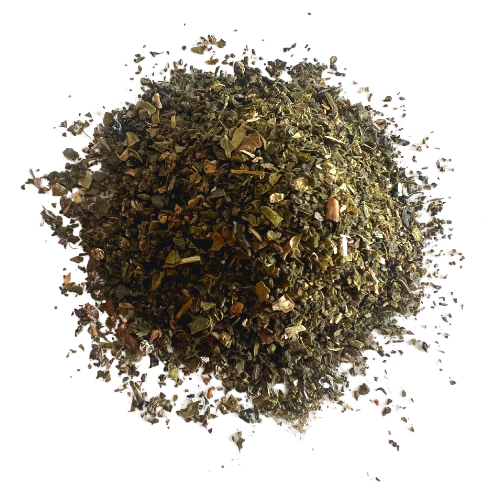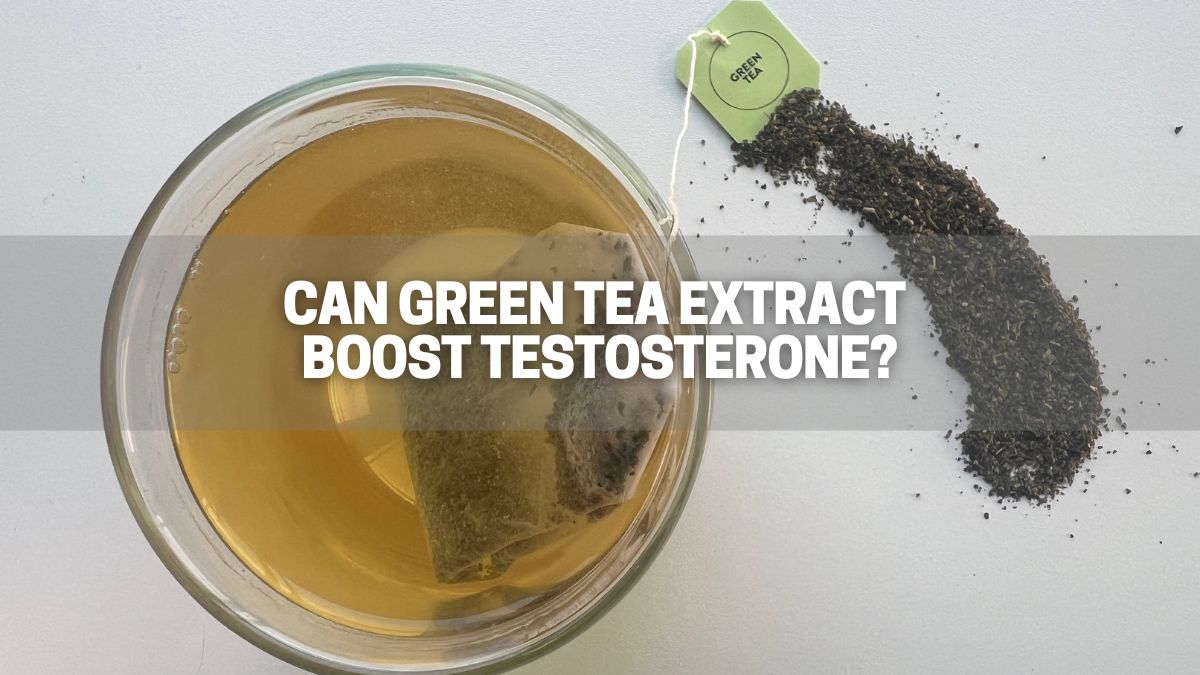There are few foods as great for overall health as Green Tea. Whether in a hot cup to go with our favorite sushi, or as an extract in our go-to supplement, we’re all doing our part to help get Green Tea up to a projected $23.66 Billion in sales by 2026. But not everything is golden in the green tea world. It turns out that it may not have the best impact on our testosterone levels, but that doesn’t mean to stay away from it completely.
Green Tea doesn’t show up on a lot of the top T-Boosters on the market, but when it does we should try to understand why it’s there. The more we know about what’s going into our bodies the better we can understand how to improve them.
what you need to know

Bad News First
Sometimes I’m a “bad news first” kind of person. That way I can end on a good note. GTE is a great example of why. First, we’ll look at a few studies that show excessive green tea can have a “castrative” effect, but then we’ll circle back around to why you shouldn’t let that scare you off of your next supplement choice.
The study that used that word–you know, the one I just put in quotation marks and made you wince?–was conducted a few years ago, and was performed on rats. Three groups were designated, one taking no GTE, one taking a moderate level, and one taking a high dose. Both of the GTE groups had significantly lower testosterone than the control group.
Another compilation of over 300 research articles identified human studies that also reported lower testosterone among GTE test groups. Luckily, these authors didn’t find anything as extreme as “castrative” effects. But the correlation is still there.
Lastly, we have a study from just a couple of years ago, this time using a lower dose of GTE on lab rats, and they found no change in testosterone levels. That’s better news than lower T, but still not great for anyone taking it for men’s health.

What Good News, Then?
Oftentimes we need to contextualize animal versus human studies. And even when we look at only human studies, we need to look for the nuances and the details. For instance, in the animal studies with the most testosterone loss, the GTE levels were much, much higher than we see in human supplements.
Secondly, GTE is still one of the absolute best things for healthy weight loss and fat metabolism. This matters a ton, because it turns out that weight loss can lead to significant T-Boosting, especially in overweight men.
Tying it all together, then, we can see that if green tea extract is taken for weight loss, it can also lead to better testosterone. In fact, even the research paper showing some T-Loss in humans also reported weight loss among those patients.
What to make of it then? Well, lucky for us, some researchers put all this conflicting data together into a clinical trial. By studying four groups of laboratory animals, they were able to see that in a high-fat diet, GTE helps prevent testosterone loss–by helping maintain a healthy body weight.
Conclusion
If the water seems murky on this, that’s okay. Here at the Great Green Wall, we aren’t trying to sell you on a trend or a miracle cure. We’re here to help you make informed decisions that are best for you. In this case, it seems the high levels of GTE can actually cause testosterone harm to your body. But if you’re taking GTE for weight loss, and if you think weight gain might be killing your T, then keep going! You should always make the decision that’s best for your body, and green tea is a perfect example of that.

